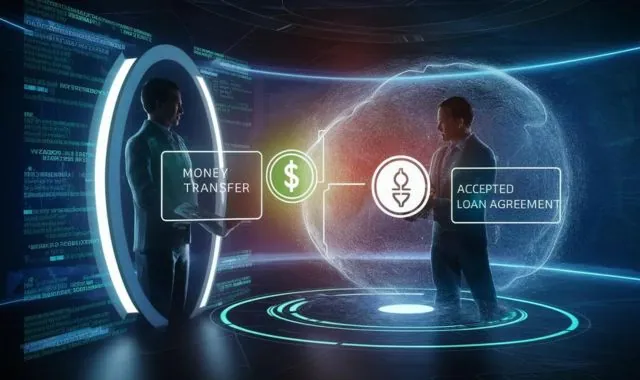Physical Address
304 North Cardinal St.
Dorchester Center, MA 02124
Physical Address
304 North Cardinal St.
Dorchester Center, MA 02124

This article explores financial technology (Fintech) and its impact on how we manage money. It dives into key sectors like digital wallets, robo-advisors, and peer-to-peer lending. Convenience, financial inclusion, and user empowerment are some of Fintech’s benefits. The future holds exciting possibilities like embedded finance and open banking. Remember to research and prioritize security when using Fintec.

Gone are the days of bulky checkbooks and lengthy bank queues. Financial technology, or Fintech for short, is rapidly transforming how we handle our finances. This article delves into the exciting world of Fintech, exploring its history, key sectors, impact on our lives, and what the future holds.
Fintech’s roots trace back to early tools like the abacus, facilitating basic calculations. The rise of credit cards and ATMs in the 20th century marked significant advancements. Today, with the explosion of smartphones and the internet, Fintech has become an undeniable force.
Modern Fintech leverages technology to offer innovative financial services. From managing your money on the go to automating investments, Fintech caters to a wide range of needs, making it a game-changer for individuals and businesses alike.
The Fintech landscape is vast and ever-evolving, but some key sectors are revolutionizing specific aspects of finance:
Gone are the days of limited payment options. Fintech offers a plethora of ways to manage your money on the move:
Secure platforms like Apple Pay and Google Pay store your credit card information, allowing contactless payments at participating retailers.
Services like M-Pesa in Africa allow users to send, receive, and store money directly using their mobile phones.

Investing doesn’t have to be intimidating. Fintech offers solutions to help you navigate the financial markets:
These automated investment platforms analyze your financial goals and risk tolerance, then create and manage a personalized investment portfolio.
Platforms like Kickstarter and Indiegogo allow individuals to pool their funds to support innovative projects and businesses.
Fintech is making borrowing and financing more accessible and efficient:
Platforms like LendingClub connect borrowers directly with lenders, often offering more competitive rates than traditional banks.
Fintech companies offer financing solutions beyond traditional banks, like invoice factoring and revenue-based financing for businesses.
Fintech’s impact extends far beyond convenience. Here are some key ways it’s reshaping our financial landscape:
Fintech empowers you to manage your finances on your own terms, anytime and anywhere.
Fintech solutions are reaching previously unbanked populations, promoting financial inclusion on a global scale.
Fintech levels the playing field by offering financial tools and services that were once exclusive to a select few.
The future of Fintech is brimming with exciting possibilities:
Imagine seamlessly integrating financial services like payments and loans within your favorite apps. Embedded finance is making this a reality.
Open Banking allows you to securely share your financial data with authorized third-party apps, enabling more personalized financial services.
As with any new technology, navigating the Fintech world requires caution:
Before choosing a Fintech service, research the company, its reputation, and security measures.
Protect your financial information by using strong passwords and enabling two-factor authentication where available.
Be aware of common Fintech scams, such as phishing attempts or fake investment opportunities.
Here are some resources to delve deeper into the exciting world of Fintech:
Stay updated on the latest Fintech trends with publications like Fintech Magazine or Fintech Weekly.
Compare different Fintech services based on your needs with platforms like NerdWallet or Finteza.
Familiarize yourself with the regulatory landscape in your region. The Consumer Financial Protection Bureau (CFPB) (US) or the Financial Conduct Authority (FCA) (UK) are good starting points.
While Fintech offers undeniable benefits, it’s important to remember the human element in managing your finances. Consider these points:
Financial decisions often involve complex considerations. While Fintech tools can be valuable aids, seek professional financial advice when needed.
Building a relationship with a trusted financial advisor can provide valuable guidance and personalized support.
Educate yourself about financial concepts and responsible money management practices.

Fintech companies are subject to regulations, but it’s always wise to choose reputable companies with strong security measures.
Start by researching your needs and exploring the various Fintech services available.
Fintech is more likely to collaborate with traditional banks, offering them innovative solutions to better serve their customers.